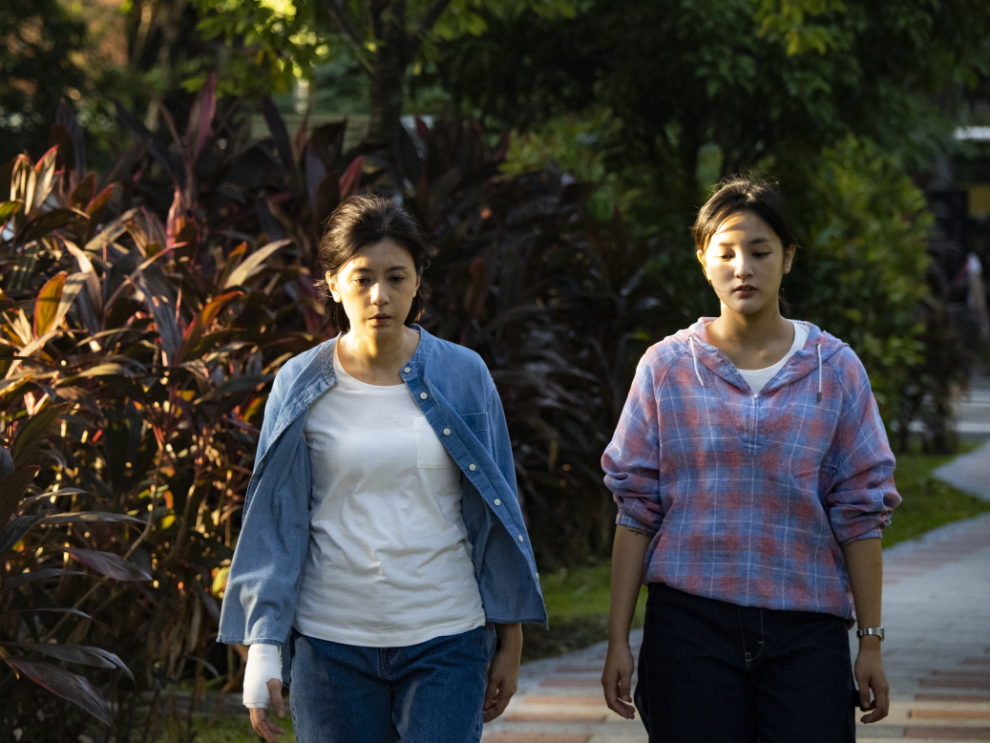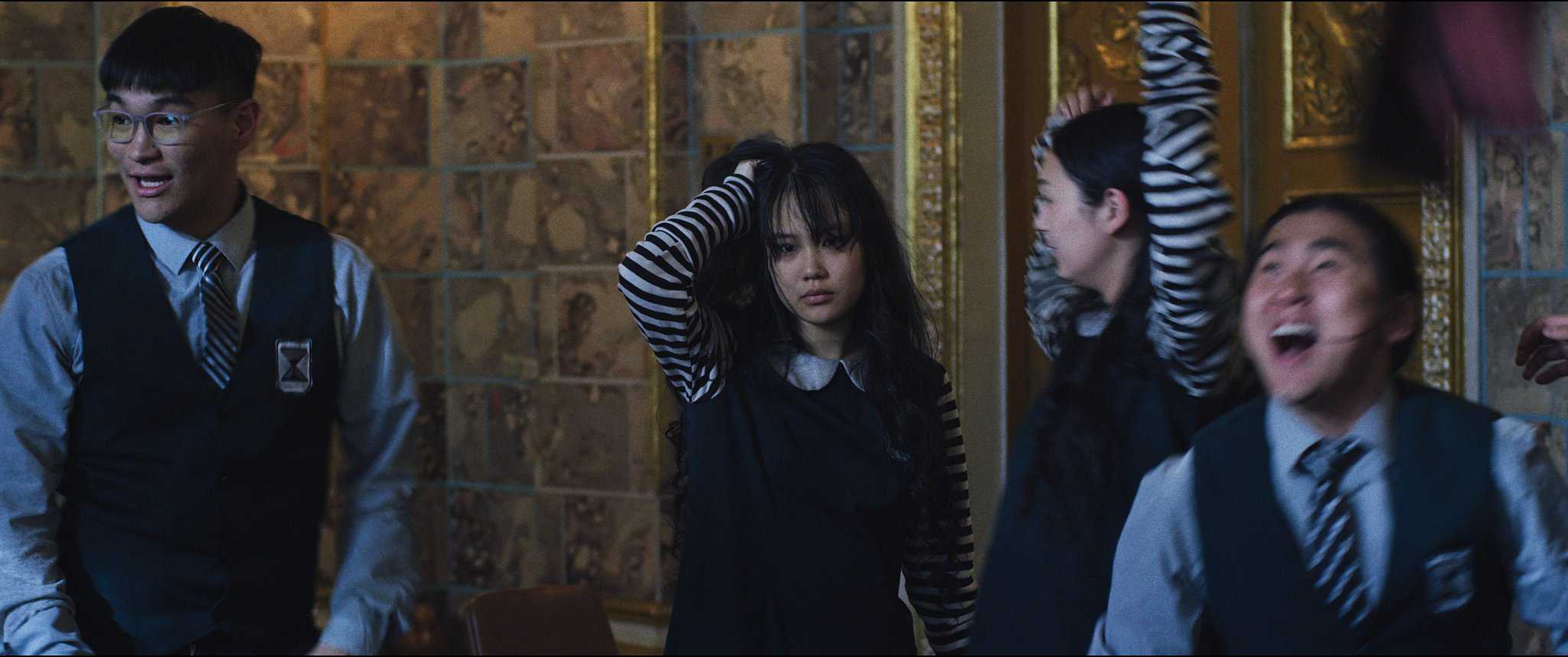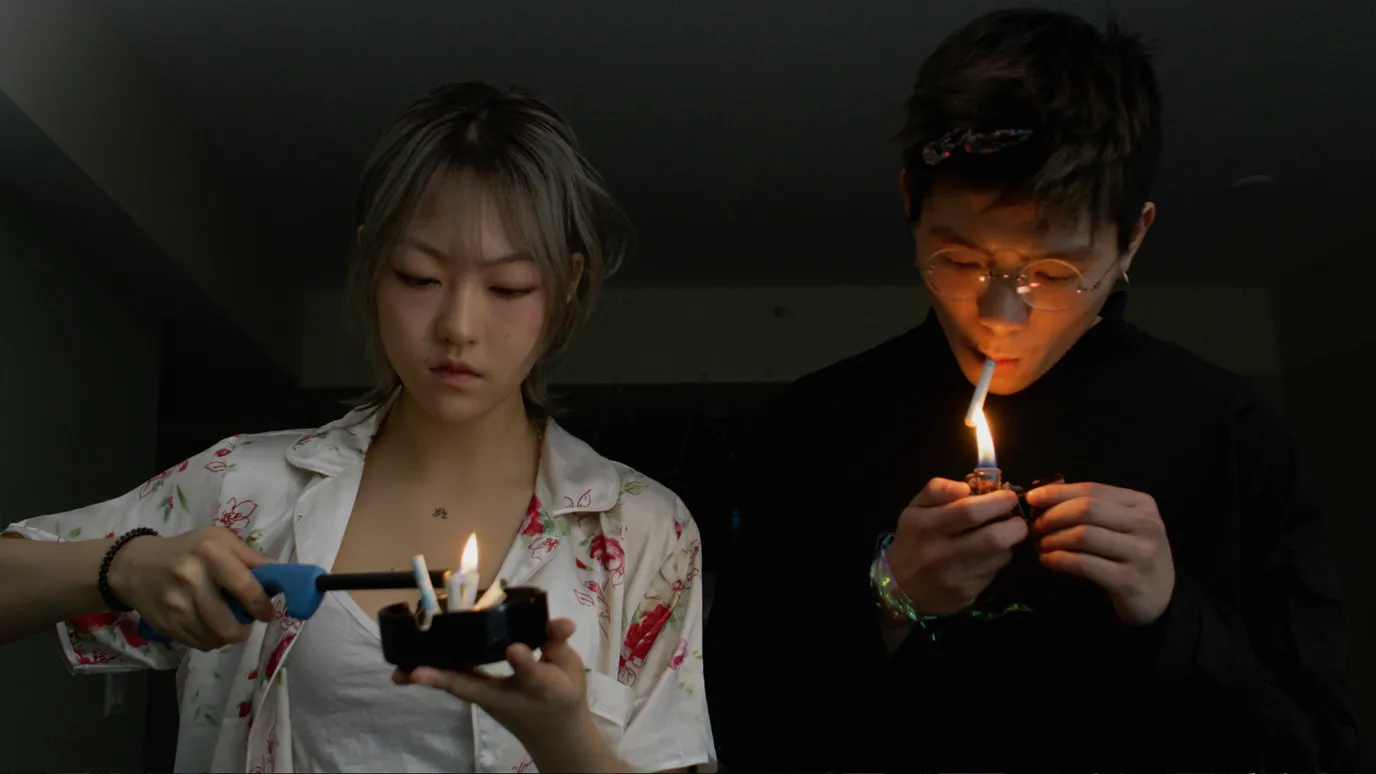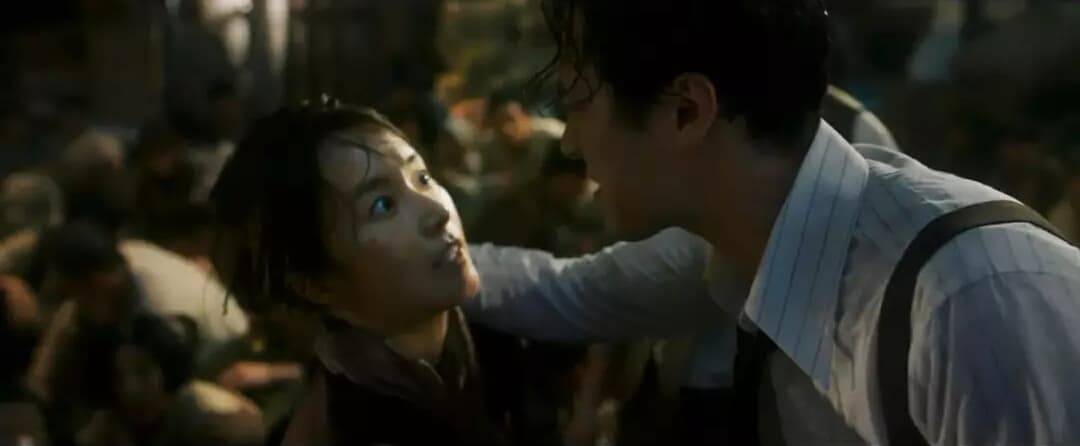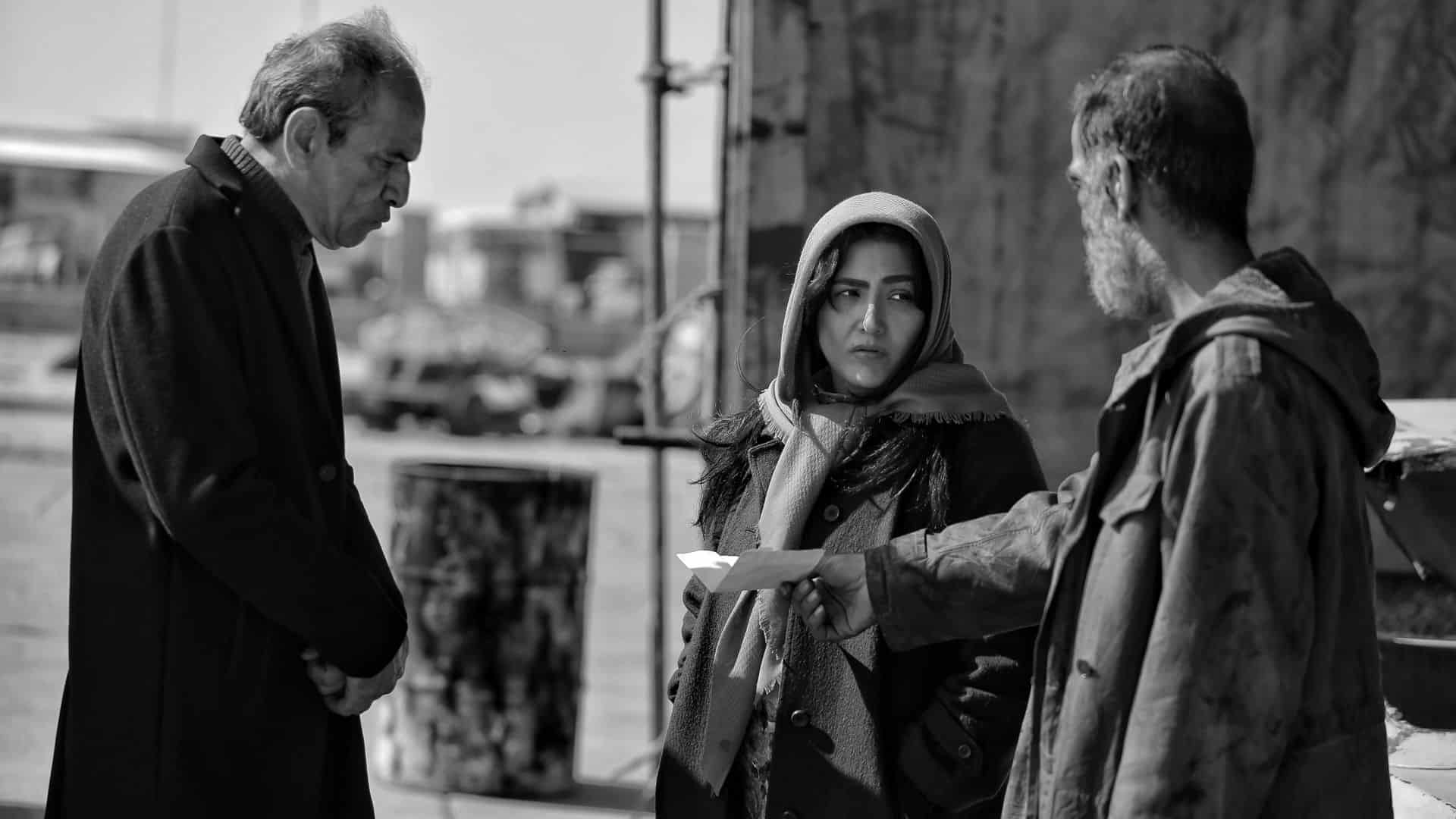Chung Mong-hong is one of the most exciting voices coming out of Taiwanese cinema for years now. His work, either as a director in titles such “Godspeed” and “A Sun” or as producer in “The Great Buddha+” and “Classmates Minus” is a always a pleasure to watch, particularly for the way he manages to combine mainstream themes with an art-house approach and rich sociopolitical context. “The Falls” is not an exception.
“The Falls” is screening at Busan International Film Festival
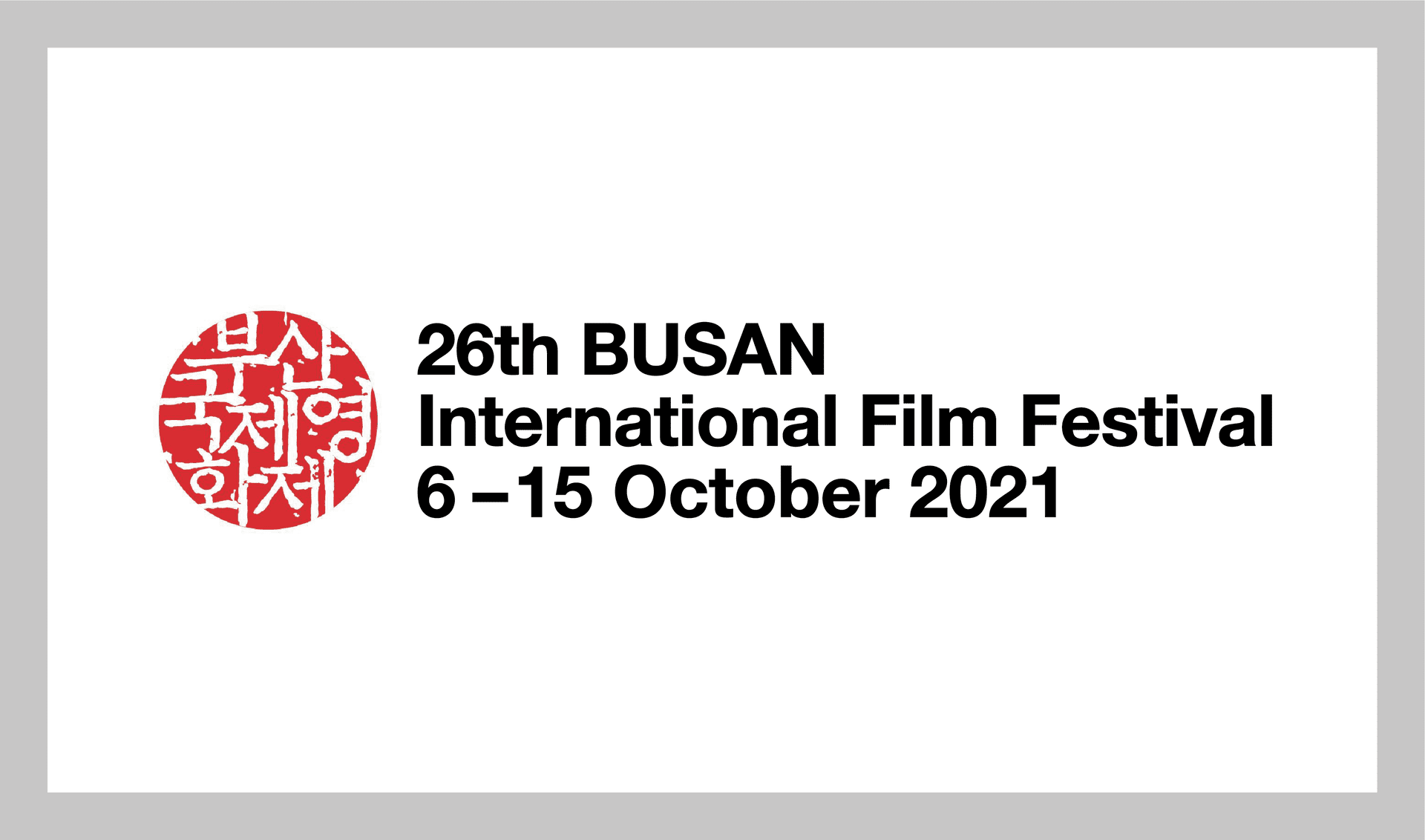
Single mother Pin-Wen is a career woman working in a multinational company, while living with her teenage daughter, Xiao Jing. One day, however, things take a turn for the worse for her, as she is informed of a severe salary cut, and also that her daughter is forced to quarantine after a classmate tested positive for coronavirus. At the company's request, Pin-Wen is also forced to stay at home, and all the issues she had with her daughter, come to the fore in the most direct fashion. Xiao Jing essentially decides to lock herself in her room, taking advantage of her potential illness to avoid having any kind of communication with her mother. As her behavior deteriorates, Pin-Wen is forced to call her ex-husband for help, but things deteriorate even more a bit later, as the nervous breakdown she seemed about to have, is proven to be something much worse. Xiao Jing has to face reality in a way she had never done before, as the issues she and her mother face have only just begun.
Chung Mong-hong, as usual, does a number of very smart things with his movie. The first one is the way he uses the pandemic and the quarantine measures as a metaphor for the strained relationship between mother and daughter, with the mask and the seclusion Xiao Jing imposes on herself, but also essentially on her mother, highlighting this approach in the best fashion. That fact that the quarantine, however, also has actual implications is also showcased here, but Chung seems to suggest that the pandemic did not exactly create new psychological issues (apart from the undeniable physical and logistical ones) but essentially intensified those that pre-existed, in a rather ingenious approach to the whole concept. At the same time, he also shows how even the consequences can result in something good, by bringing families together, allowing their members to get to know each other in a way they did not before, and essentially, realize their feelings for each other.

Another great aspect is the way he presents the downfall of Pin-Wen, whose intense psychological issues eventually become physical ones (as in financial ones) in an approach that actually borders on the horror/thriller, particularly in the scene in the rain, and the ways reality is being distorted, without the audience realizing (in the beginning) what exactly is going on. Her coming back, on a whole new set of terms, is also exceptional, additionally due to the way the whole procedure functions as the beginning of the coming of age for Xiao Jing and the reason mother and daughter come closer than ever.
All these elements benefit the most by the excellent acting, with Alyssa Chia as Pin-Wen and Gingle Wang (who has become a big name after “Detention”) as Xiao Jing portraying their transformations in the most convincing and measured fashion, as their excellent chemistry becomes evident every time they appear on screen together.
Apart from these elements, Chung has also included a number of entertaining aspects and socioeconomic comments in the film. The middle-aged romance between Pin-Wen and her new boss, and the way Xiao Jing enjoys the whole endeavour and teasing her mother is the most evident one, also benefiting the most by the presence of Chen Yi-Wen in the role. The whole endeavour with Pin-Wen's father is equally appealing in dramatic terms, while the excellent finale and particularly the way Chung approaches the revealing of Xiao Jing's fate is truly ingenious. The presentation of the differences between the dog-eat-dog world of big corporations and the much less rewarding in financial terms but, at the same time, much easier to navigate low-wage one is equally exceptional. Lastly, the fraud regarding housing that takes place in the story cements the excellent contextual approach of the movie.
Chung's own cinematography captures all the aforementioned elements through a prism of realism, which also makes the few imaginative scenes looking even more impactful (again, the wind and rain one). Lai Hsiu-Hsiung's editing allows the story to “breathe” through a rather fitting, relatively fast pace. The number of episodes is a bit too much, but since all of them are either entertaining or contextually significant (or both) this cannot be perceived as a fault exactly, also because, even at 130 minutes, the movie does not overextend its welcome.
“The Falls” proves once more the rather high cinematic level Chung Mong-hong currently resides on, in one of the best films of the year.


